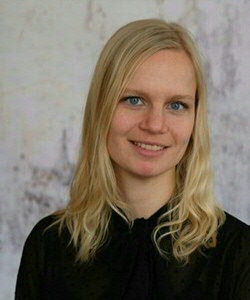Duurzame ondernemers herkennen en verzilveren kansen

Duurzame ondernemers hebben de sleutel in handen om grote problemen op te lossen. Een nieuwe onderneming kan de markt veranderen en onze manier van leven beïnvloeden. Maar hoe zet je zo’n probleem om tot een zakelijke kans? Margo Enthoven, PhD Sustainable Entrepreneurship bij Rijksuniversiteit Groningen/Campus Fryslân, promoveert op 18 maart op dit onderwerp en komt tot enkele opmerkelijke conclusies in haar thesis Unpacking opportunity recognition for sustainable Entrepreneurship.
Voor haar onderzoek interviewde Enthoven ‘ondernemende activisten en activistische ondernemers’. “Een van hen heeft zijn eigen plantaardig ijs in de markt gezet, omdat de huidige melkveehouderij hem tegenstond. Doordat hij veel op reis was voor zijn werk, kwam hij in Azië in contact met kokosmelk. ‘Wat als ik dat eens in een ijsmachine gooi?’ Zo gezegd, zo gedaan en het ligt nu in de schappen. Het idee is dus zijn bedrijf geworden.”
Duurzame ondernemers en activisten lijken op elkaar
Duurzame ondernemers en activisten hebben hetzelfde doel: de markt openbreken en gedrag van consumenten veranderen. “Ze verschillen niet zo heel veel en volgen een vergelijkbaar pad, dat begint met een emotionele schok. Bijvoorbeeld het overschot aan plastic, of het zien van misstanden in de bio-industrie: ‘Oh jee, ik draag hier aan bij, ik ben een schakeltje in dit systeem’. Iemand die dat beseft probeert een nieuwe identiteit aan te meten en een oplossing te vinden. Daaruit ontstaan kansen, omdat zo’n nieuwe identiteit een nieuw netwerk met zich meebrengt, en daarbij toegang tot nieuwe kennis en middelen verleent.”
Kansen herkennen
Margo Enthoven constateert in haar onderzoek dat duurzame ondernemers vooral kansen herkennen op plekken waar al veel bedrijven uit dezelfde industrie zijn gevestigd, ook als deze niet expliciet duurzaam zijn. Ze laat daarbij zien dat het belangrijk is om duurzaam ondernemerschap te stimuleren op plekken waar de specifieke industrie van de duurzame ondernemers in kwestie al sterk vertegenwoordigd is.
Toepasbare strategieën voor duurzaam succes
Enthoven beschrijft in haar proefschrift enkele toepasbare strategieën, zoals het verbreden van de markt en verbinden van diverse groeperingen. “Een activist kan wijzen op het leed dat gepaard gaat met de productie van vlees. De ondernemer komt met een duurzaam alternatief en noemt het vervolgens leedvrij, of linkt minder vlees eten aan gezonder leven. Zo wordt er verbinding gelegd. Er is een bepaalde synergie tussen beide en ze zouden elkaar kunnen faciliteren.” De uitkomsten geven haar voldoening. “Het is een hoopvolle conclusie. Probleemherkenning is mooi, maar het is nog mooier om daarmee aan de slag te gaan en strategieën te beschrijven die tot zakelijke kansen leiden. Dat kan men meenemen in het lesgeven, daar kan men blogs over schrijven of workshops over geven. Het maakt het concreet.”
Meer nieuws
-
27 november 2025
RUG heeft alweer beste bacheloropleiding in Nederland
-
28 oktober 2025
‘Onze kernwaarden moeten voorop staan bij digitale keuzes’
-
07 juli 2025
De minder zonnige kanten van toerisme
